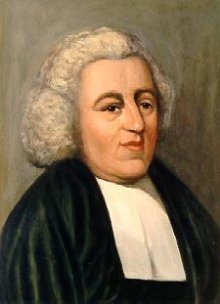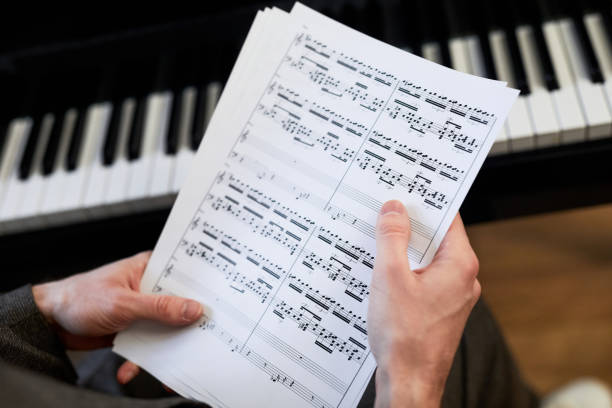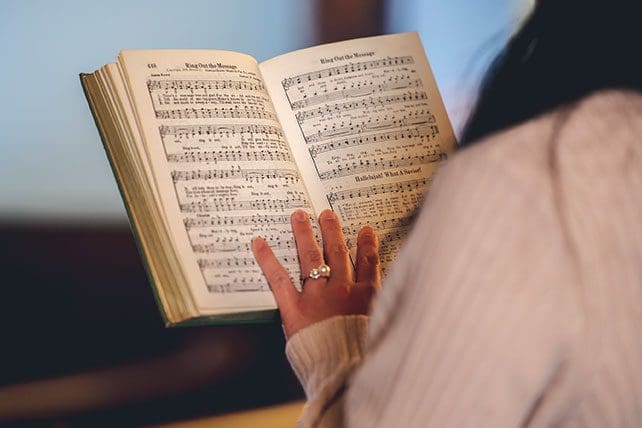Praise to the Lord the Almighty
Lyrics
O my soul, praise him, for he is your health and salvation!
Come, all who hear; now to his temple draw near,
join me in glad adoration.
sheltering you under his wings, and so gently sustaining!
Have you not seen all that is needful has been
sent by his gracious ordaining?
surely his goodness and mercy shall daily attend you.
Ponder anew what the Almighty can do,
if with his love he befriends you.
All that has life and breath, come now with praises before him.
Let the Amen sound from his people again;
gladly forever adore him.
Bible Reference
Psalm 103:1–6; Psalm 150; Psalm 67:3
About This Hymn
Joachim Neander (1650–1680), often regarded as the greatest hymnwriter of the German Reformed tradition, penned this majestic hymn of praise during his short but impactful life. Born in Bremen, Germany, on May 31, 1650, Neander was a gifted theologian, poet, and musician whose hymns overflow with exuberant worship. Though he died at just 30 years old, he left behind a legacy of around 60 hymns, many of which remain staples in Christian hymnals today. The Julian Dictionary of Hymnology hails this particular hymn as "a magnificent hymn of praise, perhaps the finest production of its author and of the first rank in its class."
Neander’s lyrics, originally titled "Lobe den Herren" ("Praise to the Lord"), draw deeply from Psalm 103:1-6 and Psalm 150, echoing the psalmist’s call to worship God for His power, mercy, and sustaining grace. The hymn also reflects Psalm 67:3—"Let the people praise Thee, O God; let all the people praise Thee."
Catherine Winkworth: Bringing German Hymnody to the English-Speaking World
The hymn’s enduring presence in English worship is largely due to Catherine Winkworth (1827–1878), a pioneering figure in women’s education and one of the most skilled translators of German hymns. Born in London on September 13, 1827, Winkworth played a crucial role in revitalizing interest in German hymnody, which had seen little translation since John Wesley’s work in the 18th century.
Her 1863 publication, The Chorale Book for England, introduced this hymn to English congregations, along with other classics like "Now Thank We All Our God." Winkworth’s translations were celebrated for their poetic beauty and faithfulness to the original texts, helping to bridge German and English hymn-singing traditions.
A Timeless Melody: "Lobe den Herren"
The hymn’s stirring tune, also named "Lobe den Herren," first appeared in the 1665 edition of the Stralsund Gesangbuch. Tradition holds that Neander himself selected this melody for his text, and the pairing has remained inseparable for over 350 years. The tune entered English hymnals in 1904 with Hymns Ancient and Modern, solidifying its place in global Christian worship.
A Lasting Legacy
Neander’s hymn stands as a cornerstone of Reformation-era hymnody, exalting God’s sovereignty, providence, and love. Its triumphant verses have been sung in cathedrals, revival meetings, and everyday devotions, transcending denominational and cultural boundaries.
Winkworth’s translation ensured that this German masterpiece would inspire English-speaking believers for generations, while the tune’s majestic cadences continue to evoke awe and reverence. Together, they form a hymn that is both theologically rich and universally uplifting—a true testament to the power of sacred music.
Today, "Praise to the Lord, the Almighty" remains one of the most beloved hymns of worship, a fitting tribute to its young author, its gifted translator, and the enduring truth that "all that hath life and breath" should praise the Lord.
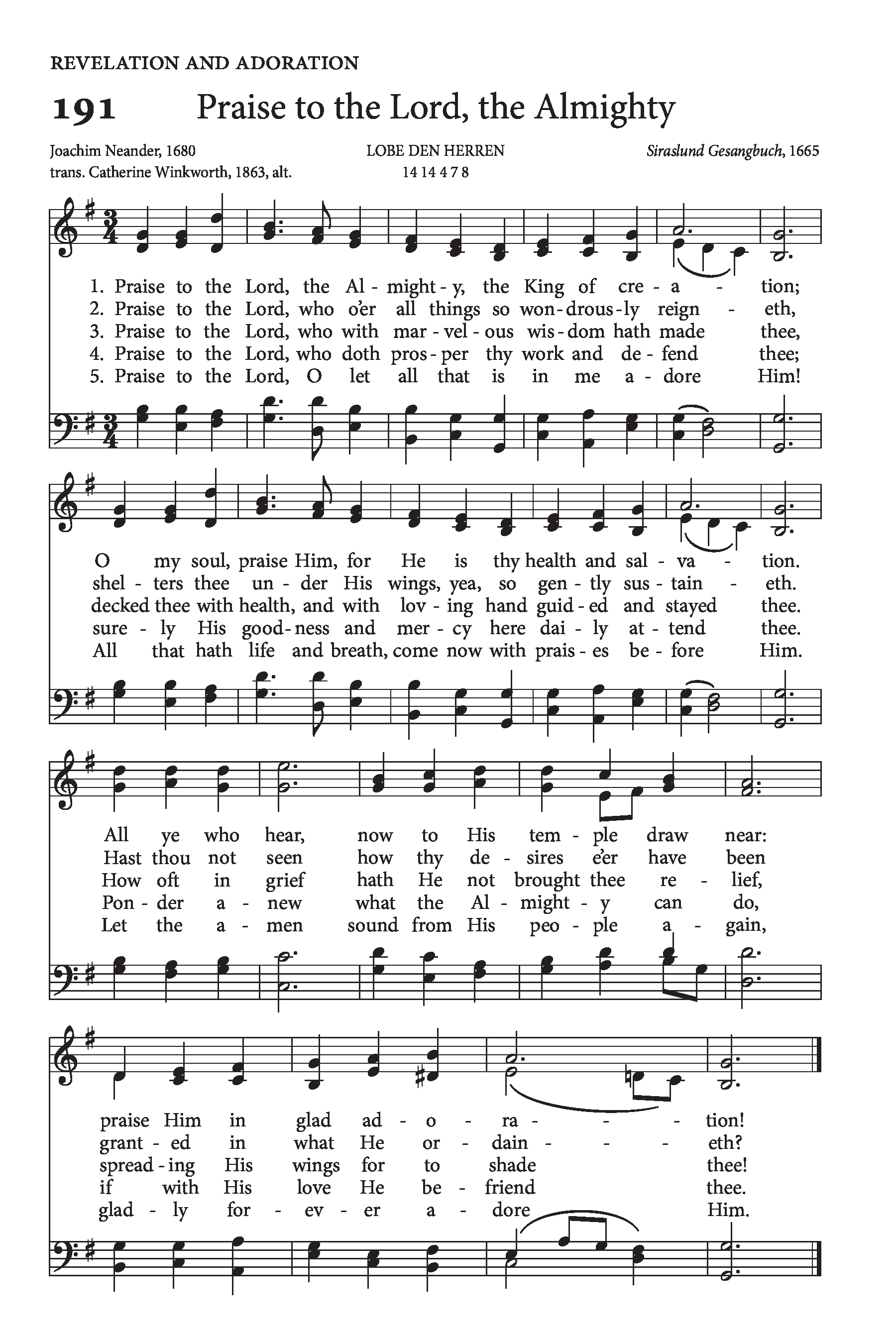

📬 Subscribe to Our Devotional Updates
Receive weekly hymns, devotionals, and website features directly in your inbox.
⭐ Recommend This Hymn
Share this beautiful hymn with others
This hymn is found in these hymnals
Open the hymnal that contains this hymn:
Latest Updated Hymnals
-
Open
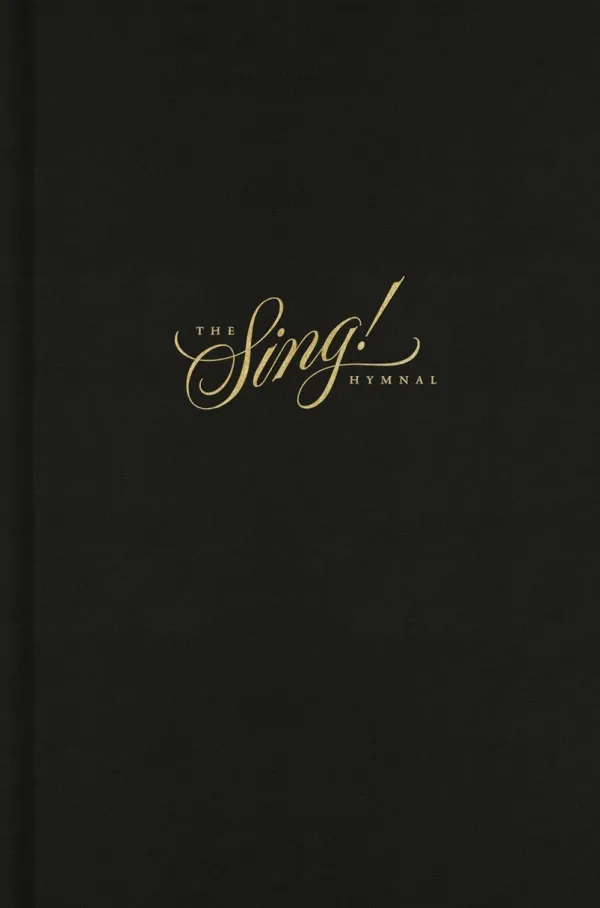 Sing! HymnalUpdated Feb 13, 2026 · 2025
Sing! HymnalUpdated Feb 13, 2026 · 2025 -
Open
 African Songs of Worship (ASW1986)Updated Feb 12, 2026 · 1986
African Songs of Worship (ASW1986)Updated Feb 12, 2026 · 1986 -
Open
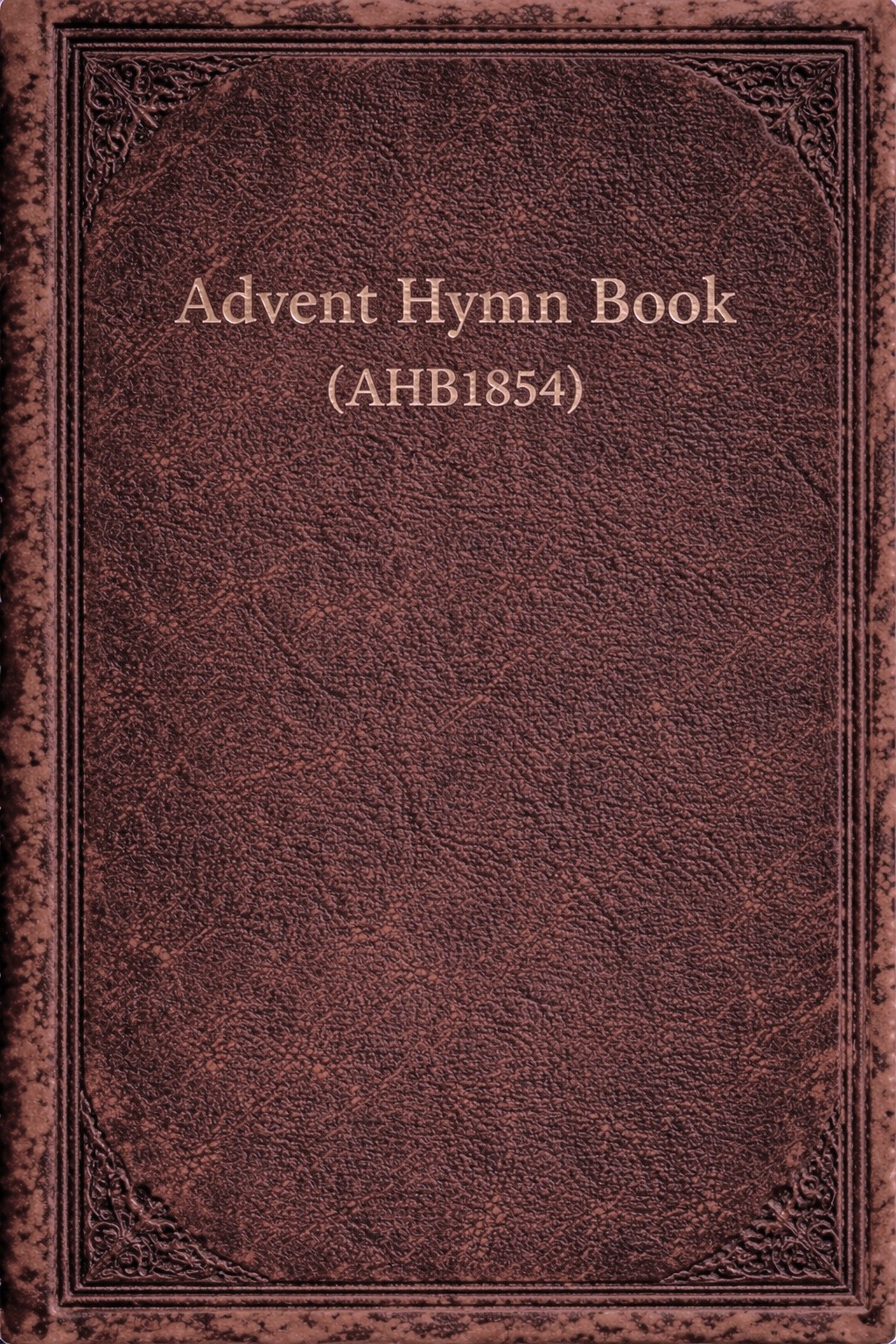 Advent Hymn Book (AHB1854)Updated Feb 12, 2026 · 1854
Advent Hymn Book (AHB1854)Updated Feb 12, 2026 · 1854 -
Open
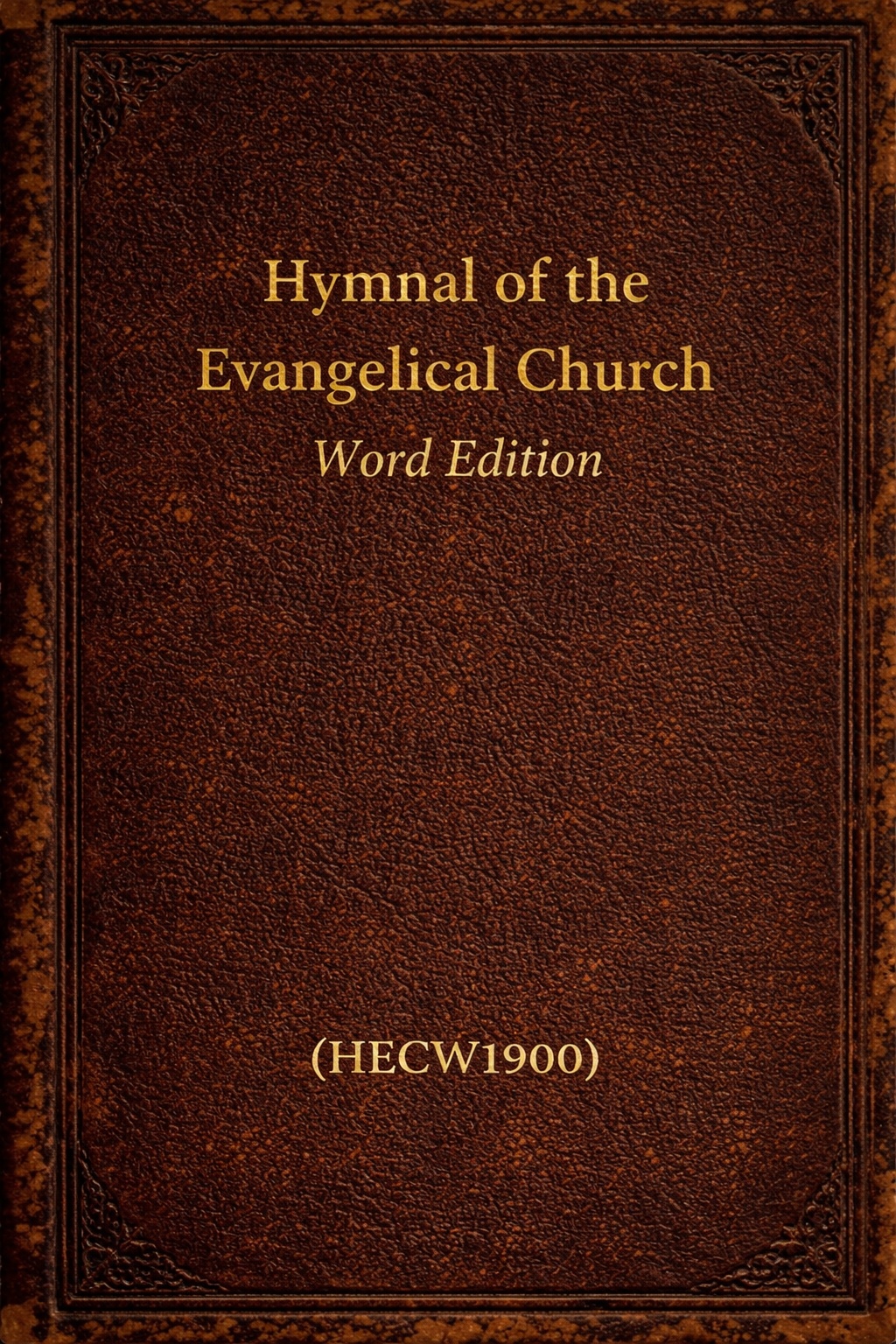 Hymnal of the Evangelical Church, Word Edition (HECW1900)Updated Feb 12, 2026 · 1900
Hymnal of the Evangelical Church, Word Edition (HECW1900)Updated Feb 12, 2026 · 1900 -
Open
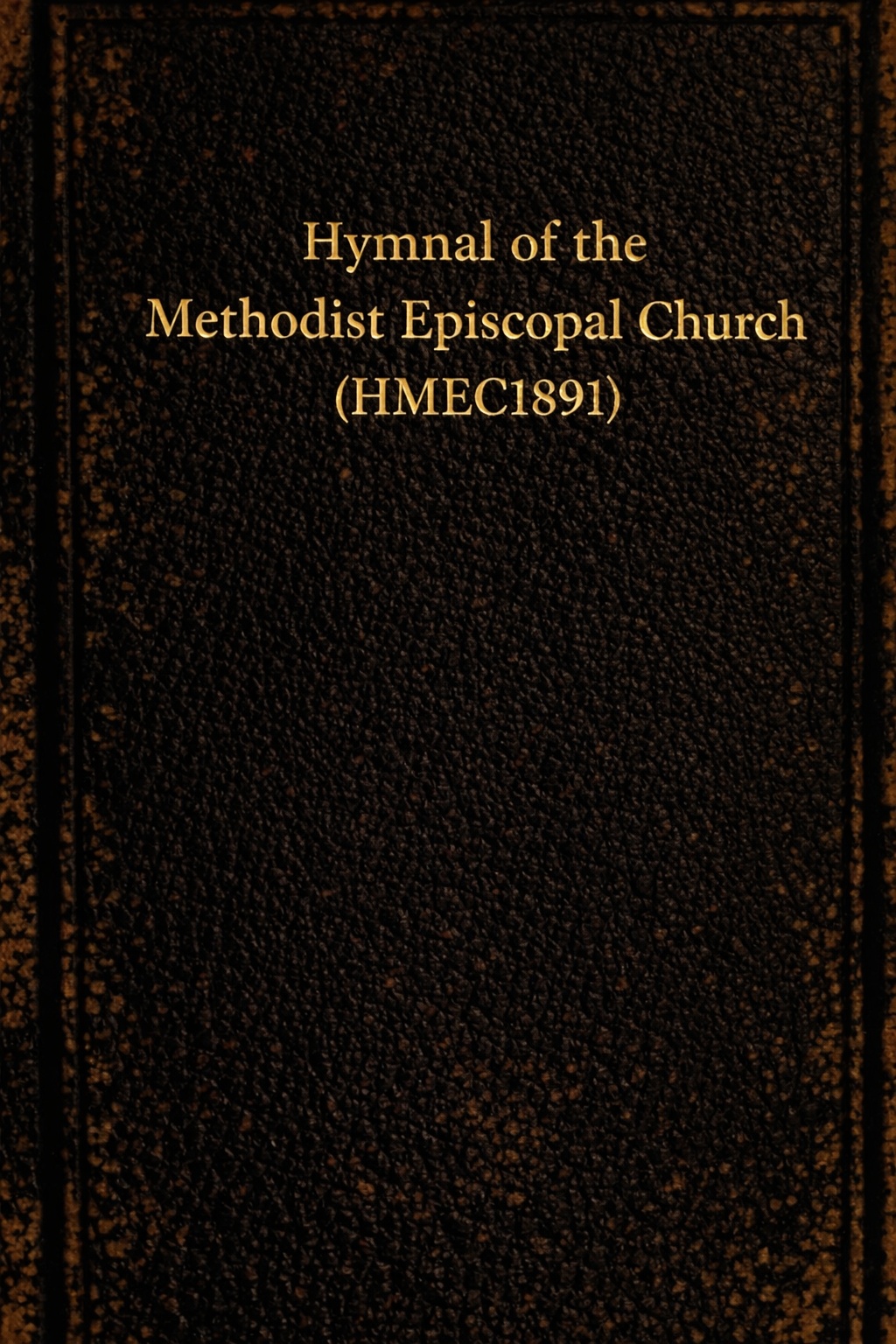 Hymnal of the Methodist Episcopal Church (HMEC1891)Updated Feb 12, 2026 · 1891
Hymnal of the Methodist Episcopal Church (HMEC1891)Updated Feb 12, 2026 · 1891
Hymn Information
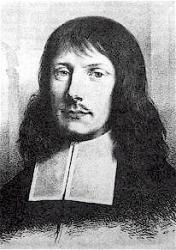
- Category: Hymn
- Author/Writer: Joachim Neander (1680)
- Added: July 4, 2025
- Last Updated: July 4, 2025
- Views: 2360
To view the author's biography, click their name above.
MIDI File
More Hymns by Joachim Neander
Popular Hymns
Recent Blog Posts
Popular Blog Posts
Visit Us on Social Media
Latest from X (Twitter)
Tweets by HymnalLibraryLatest from Facebook
Latest on YouTube
Daily Bible Verse
Disclaimer
The hymns, sheet music, MIDI files, and related content on this website are provided for educational and research purposes only.
- Public Domain: Many of the hymns featured here are in the public domain and may be freely used.
- Copyrighted Works: Some hymns may still be under copyright protection. Where applicable, permission has either been requested from the copyright owner, or the content is shared under the principles of fair use for educational purposes.
⚠️ Important Notice: If you wish to reproduce, distribute, or use any copyrighted hymn beyond personal study or educational use, you must obtain permission directly from the copyright holder. This website does not grant any rights for commercial use yet.
If there is any other question please address it to us in our Contact Page, for further assistance. Thank you for using the site. May God Bless You.


